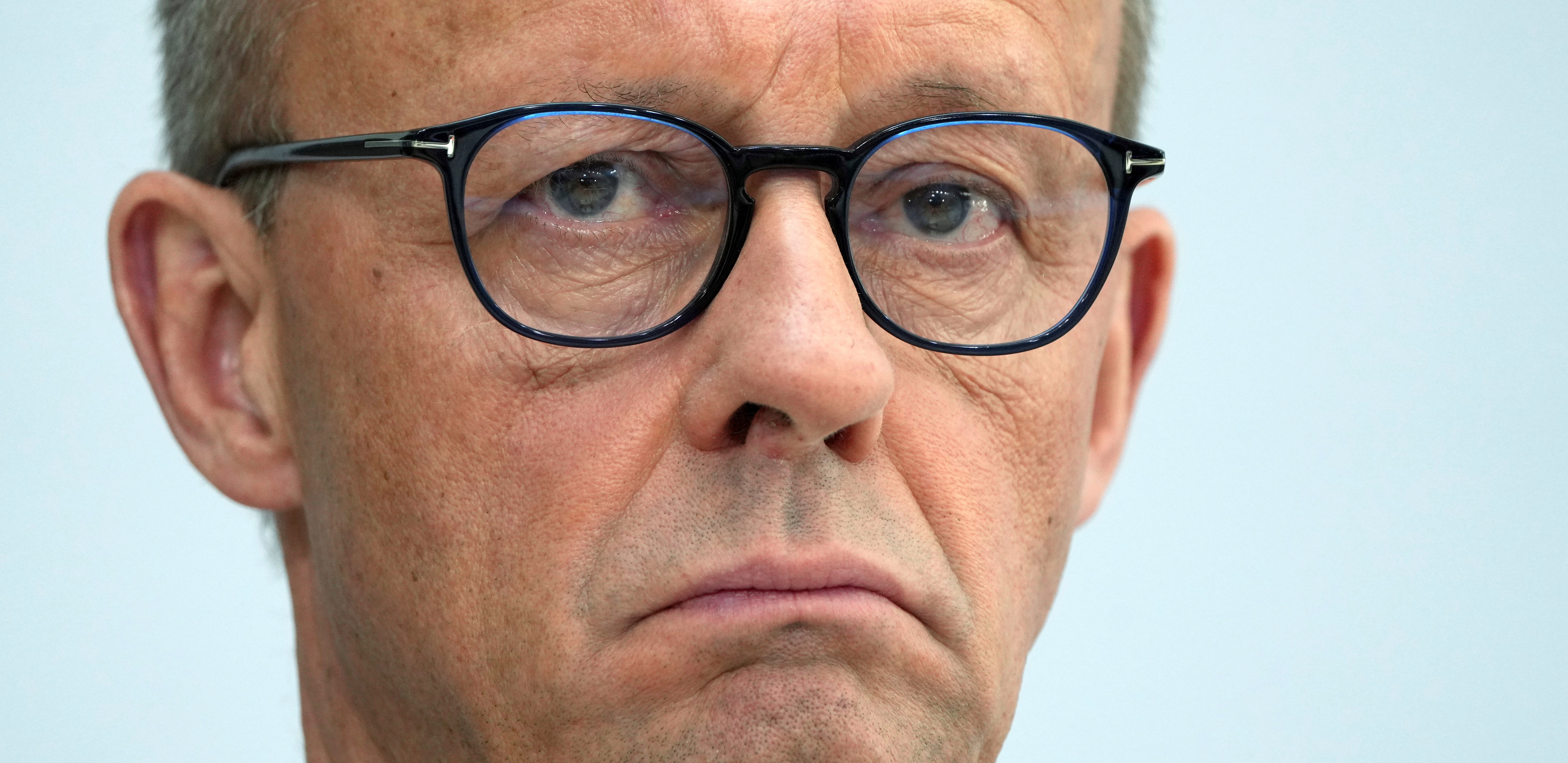German opposition leader faces unease over comments on cooperation with far right
Germany’s opposition leader is insisting that there will be no “cooperation” at the local level between his party and the far-right Alternative for Germany after his suggestion that they might somehow work together drew unease within his own conservative bloc

Your support helps us to tell the story
From reproductive rights to climate change to Big Tech, The Independent is on the ground when the story is developing. Whether it's investigating the financials of Elon Musk's pro-Trump PAC or producing our latest documentary, 'The A Word', which shines a light on the American women fighting for reproductive rights, we know how important it is to parse out the facts from the messaging.
At such a critical moment in US history, we need reporters on the ground. Your donation allows us to keep sending journalists to speak to both sides of the story.
The Independent is trusted by Americans across the entire political spectrum. And unlike many other quality news outlets, we choose not to lock Americans out of our reporting and analysis with paywalls. We believe quality journalism should be available to everyone, paid for by those who can afford it.
Your support makes all the difference.Germany's opposition leader insisted on Monday that there will be no “cooperation” at the local level between his party and the far-right Alternative for Germany after his suggestion that they might somehow work together drew unease within his own conservative bloc.
Friedrich Merz's center-right Christian Democratic Union has long said it won't work with Alternative for Germany, or AfD, which has drifted steadily further right. Merz reiterated in a ZDF television interview Sunday that there would be no cooperation in the national, state or European parliaments with AfD, which recently has surged in polls.
But he was more equivocal about the situation at town and county level, after the first AfD candidates recently won elections in eastern Germany to lead a county administration and become the full-time mayor of a municipality.
Those were democratic elections that “we have to accept,” Merz said. “And then of course ways have to be sought in local parlaments to organize the town, the countryside or the county together.”
Merz, who has dropped similar but less-noticed hints in recent weeks, didn't elaborate. Several party allies downplayed his comments, but there were signs of unease.
“The CDU cannot, doesn't want to and won't cooperate with a party whose business model is hatred, division and exclusion,” Berlin Mayor Kai Wegner wrote on Twitter. Yvonne Magwas, one of the national parliament's deputy speakers, wrote: “Whether district council or (national) parliament, right-wing radicals remain right-wing radicals. For Christian Democrats, right-wing radicals are ALWAYS the enemy!”
Merz's CDU is one of two parties that make up the main conservative opposition bloc. The leader of the other, Bavaria's Christian Social Union, said that his party “rejects any cooperation with AfD — no matter at what political level.”
“AfD is hostile to democracy, far-right and divides our society,” Markus Soeder wrote on Twitter. “That is not compatible with our values.”
Merz himself then tweeted “to clarify again, and I never put it differently” that the CDU's existing position remains valid and “there will be no cooperation by the CDU with AfD at local level either.”
Merz drew criticism last week for describing the conservative bloc as an “alternative for Germany with substance.” The bloc currently leads German national polls but with lackluster ratings, and has failed to capitalize fully on discontent with Chancellor Olaf Scholz's three-party coalition. AfD is particularly strong in eastern Germany, where three regions will hold state elections next year.
Merz recently has appeared keen to bolster his party's appeal to voters on the right, replacing the official responsible for the CDU's day-to-day political strategy with a law-and-order conservative. Another top aide last week advocated scrapping the individual right to asylum in Europe and replacing it with a system under which a “contingent” of 300,000 to 400,000 refugees per year would be allowed in.